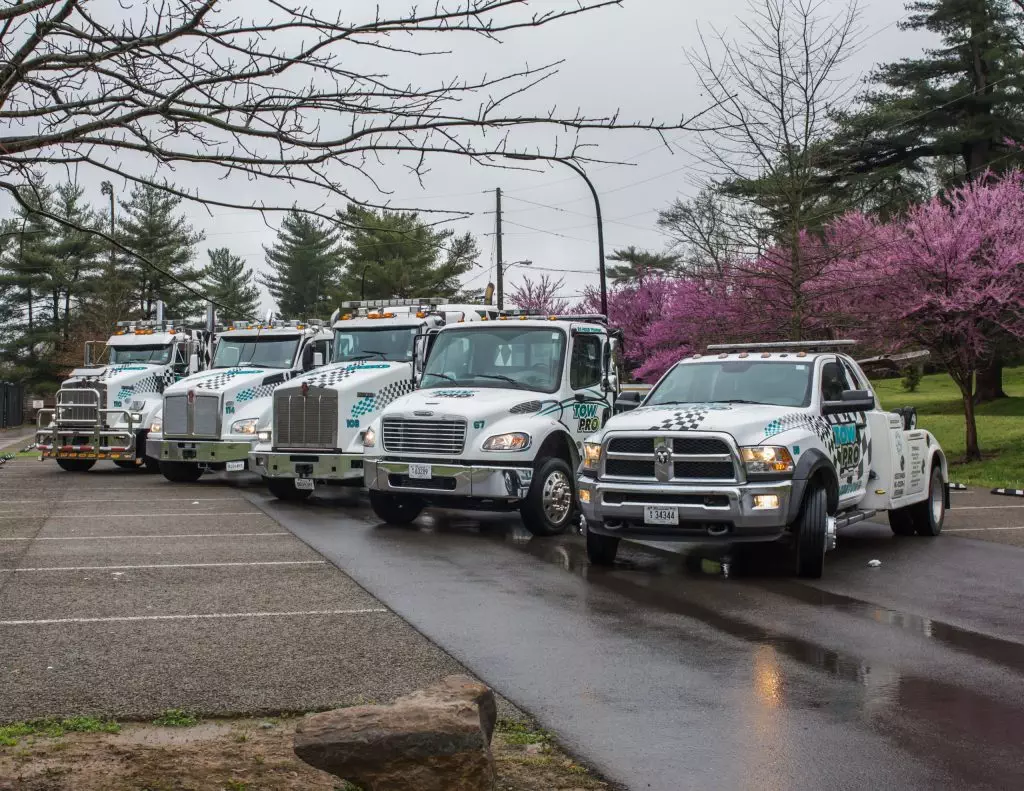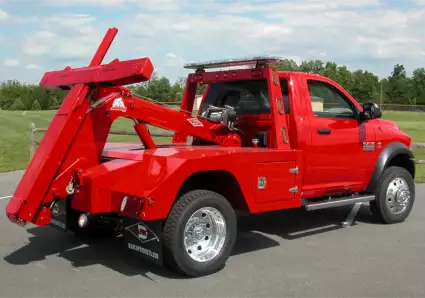In this article, we will be discussing what a light tow truck is and what it is used for. A light tow truck, also known as a light-duty tow truck, is a type of vehicle used for towing smaller cars, motorcycles, or other light vehicles. It is designed to handle lighter loads and is equipped with a smaller towing capacity compared to heavy-duty tow trucks.
So, what can a light tow truck be used for? A light tow truck is commonly used for roadside assistance, emergency towing, and transportation of smaller vehicles. It is often the go-to option for towing vehicles that are stuck in a ditch, have a flat tire, or require a simple jump-start. Its smaller size and towing capacity make it more maneuverable and suitable for accessing narrow or congested areas. Additionally, some light tow trucks are equipped with specialized features, such as wheel-lift or flatbed capabilities, to accommodate different types of vehicles and towing needs.
Understanding Light Tow Trucks
What is a Light Tow Truck?
A light tow truck, also known as a light-duty tow truck, is a type of vehicle designed to tow smaller vehicles. It is specifically built for towing automobiles that are lighter in weight, such as cars, motorcycles, and small trucks. These trucks are compact in size, lightweight in construction, and offer versatile towing capacities.
Characteristics of Light Tow Trucks
Light tow trucks are designed with several distinct characteristics that enable them to efficiently and effectively tow smaller vehicles. Some of these characteristics include:
Compact Size
One of the essential features of a light tow truck is its compact size. These trucks are smaller in dimensions compared to heavy-duty tow trucks, allowing them to navigate tight spaces with ease. Whether it’s a busy city street or a narrow parking lot, these compact trucks can maneuver around obstacles and reach the vehicle in need of towing without causing any inconvenience or disruption.
Lightweight Construction
Light tow trucks are known for their lightweight construction. They are made from materials that are both durable and lightweight, such as aluminum or strong composites. This lightweight construction allows the tow truck to have increased fuel efficiency and better handling capabilities, making it easier for the driver to control the vehicle while towing.
Versatile Towing Capacities
Despite being designed for smaller vehicles, light tow trucks have excellent towing capacities. They can efficiently tow vehicles weighing up to 10,000 pounds or more, depending on the specific model and configuration. This versatility ensures that light tow trucks can handle a wide range of vehicles, from compact cars to small trucks, without compromising on safety or performance.
Efficiency and Maneuverability
Light tow trucks are highly efficient and maneuverable, making them an ideal choice for various towing situations. With their compact size, these trucks can quickly navigate through congested areas and offer prompt roadside assistance. Additionally, their nimble handling allows them to position the towed vehicle securely without causing any damage or further complications.
Applications of Light Tow Trucks
Due to their unique characteristics and capabilities, light tow trucks have various applications in the towing industry. Here are some of the common applications:
Emergency Roadside Assistance
Light tow trucks play a critical role in providing emergency roadside assistance to stranded motorists. Whether it’s a flat tire, dead battery, or mechanical failure, these trucks can quickly respond to the scene and provide necessary assistance, such as jump-starting a vehicle, changing a tire, or delivering fuel. Their compact size and versatility ensure that they can reach the location swiftly and efficiently, minimizing inconveniences for the motorists.
Parking Enforcement
Light tow trucks are often used by parking enforcement agencies to enforce parking regulations effectively. These trucks can quickly remove illegally parked vehicles from restricted zones, fire lanes, or other non-permitted areas. By promptly towing these vehicles away, light tow trucks help maintain order and ensure the smooth flow of traffic in crowded urban areas.
Vehicle Recovery Services
In cases of vehicle breakdowns, accidents, or incidents, light tow trucks are called upon to provide vehicle recovery services. These trucks not only tow the disabled vehicle but also assist in recovering vehicles from challenging terrains or precarious situations. Their lightweight construction allows them to navigate through difficult off-road paths, making them an invaluable asset for rescuing vehicles in distress.
Transportation of Small Vehicles
Light tow trucks are also commonly used for the transportation of small vehicles. Whether it’s delivering a newly purchased vehicle to a customer’s location or transporting vehicles for auctions or exhibitions, these trucks provide a safe and efficient means of transportation. Their compact size and versatile towing capacities make them ideal for carrying multiple vehicles at once, minimizing the need for additional trips and reducing overall transportation costs.
Definition of a Light Tow Truck
To fully understand a light tow truck, it is important to explore its legal and regulatory classifications as well as its weight and Gross Vehicle Weight Rating (GVWR).
Legal and Regulatory Classifications
In most jurisdictions, light tow trucks fall under specific legal and regulatory classifications that define their features and capabilities. These classifications vary between countries and regions, but generally specify the maximum weight a light tow truck can tow, the type of vehicles it can tow, and the certifications or licenses required to operate such vehicles.
Weight and Gross Vehicle Weight Rating (GVWR)
The weight of a light tow truck itself, excluding the weight of the towed vehicle, is an essential factor to consider. Light tow trucks are designed to have a lower Gross Vehicle Weight Rating (GVWR) compared to heavy-duty tow trucks. The GVWR is the maximum weight a vehicle can safely carry, including passengers, cargo, and fuel. This rating determines the towing capacity of the tow truck and ensures safe operation under the specified weight limits.
Features and Specifications
Light tow trucks come equipped with various features and specifications that enhance their towing capabilities and ensure the safety of both the tow truck operator and the towed vehicle. Some of these features include:
Towing Capacity
Light tow trucks are designed to have a towing capacity ranging from 6,000 pounds to 10,000 pounds or more, depending on the specific model and configuration. This towing capacity allows them to safely and effectively tow a wide range of small vehicles, including compact cars, motorcycles, and small trucks.
Powertrain Options
Light tow trucks offer different powertrain options to suit various requirements and preferences. These options may include gasoline engines, diesel engines, or even hybrid powertrains. The choice of powertrain can impact factors such as fuel efficiency, torque, and overall performance, allowing operators to choose the most suitable option for their specific needs.
Safety and Emergency Equipment
To ensure the safety of both the tow truck operator and other road users, light tow trucks are equipped with safety and emergency equipment. This equipment may include flashing lights, emergency sirens, reflective markings, and safety chains. Additionally, some light tow trucks may also feature advanced safety systems, such as anti-lock braking systems (ABS) and stability control, to enhance overall safety during towing operations.
Accessibility Features
Light tow trucks are designed to be user-friendly and accessible for both the operator and the towed vehicle. They often feature ergonomic controls and adjustable seating positions to ensure comfort for the operator during long hours behind the wheel. Additionally, they may include features such as low-angle loading ramps or hydraulic lift systems to ease the process of loading and unloading the towed vehicle.

This image is property of www.hollywoodtowing.com.
Compact Size
The compact size of light tow trucks offers several benefits that make them highly advantageous in the towing industry.
Benefits of Compact Size
A compact tow truck can easily navigate through busy city streets, narrow residential areas, or cramped parking lots without causing congestion or inconvenience to other road users. This ability to maneuver in tight spaces is crucial when responding to emergency calls or providing roadside assistance in busy urban areas.
Navigating Tight Spaces
Whether it’s a narrow alleyway, a crowded parking garage, or a small residential street, light tow trucks can efficiently navigate through tight spaces. Their compact size allows them to maneuver around obstacles, parked cars, or other hindrances, making it easier for the operator to reach the vehicle in need of towing.
Ease of Storage and Transportation
Light tow trucks also have the advantage of being easier to store and transport compared to their heavier counterparts. Their compact dimensions make them suitable for garages or storage facilities with limited space. Furthermore, their lightweight construction allows for lower transportation costs when moving the tow truck between different locations or towing operations.

This image is property of www.extremetacticaldynamics.com.
Lightweight Construction
The lightweight construction of light tow trucks offers several advantages in terms of fuel efficiency, reduced wear and tear, and overall performance.
Advantages of Lightweight Materials
Light tow trucks are typically constructed using lightweight materials, such as aluminum or strong composites, which offer several benefits. Firstly, lightweight construction results in increased fuel efficiency, as the tow truck requires less energy to move and operate. Secondly, it reduces the overall weight of the tow truck, resulting in improved handling and maneuverability. Lastly, lightweight materials provide the tow truck with enhanced durability, as they are resistant to corrosion and other forms of wear and tear.
Fuel Efficiency
With rising fuel costs and environmental concerns, fuel efficiency has become a crucial consideration for tow truck operators. Light tow trucks, with their lightweight construction and efficient powertrains, offer improved fuel efficiency compared to heavier tow trucks. This fuel efficiency not only helps operators save on fuel expenses but also reduces the carbon footprint of their towing operations.
Reduced Wear and Tear
The lightweight construction of light tow trucks helps minimize wear and tear on various components, such as tires, brakes, and suspension systems. With less weight exerted on these components, they experience less strain and undergo reduced wear, resulting in longer-lasting and more reliable towing equipment. This reduced wear and tear also contribute to lower maintenance and repair costs, benefiting tow truck operators in the long run.

This image is property of www.towproservices.com.
Versatile Towing Capacities
Light tow trucks are designed to offer versatile towing capacities, allowing them to handle a wide range of vehicles in different situations.
Types of Vehicles
Light tow trucks can safely and efficiently tow various types of vehicles, including compact cars, motorcycles, small trucks, and SUVs. Their towing capabilities make them versatile assets in the towing industry, capable of handling different vehicle sizes and weights.
Weight Limits
The towing capacity of light tow trucks typically varies between 6,000 pounds to 10,000 pounds or more, depending on the specific model and configuration. This weight limit ensures that the tow truck can safely handle a range of vehicles without compromising on safety or performance. It is essential for tow truck operators to understand the weight limitations of their light tow trucks to ensure compliance with legal regulations and safe towing operations.
Towing Techniques
Light tow trucks offer various towing techniques to accommodate different scenarios and vehicles. These techniques may include flatbed towing, where the entire vehicle is loaded onto a flatbed, or wheel-lift towing, where only the front or rear wheels of the vehicle are lifted off the ground. The versatility of these towing techniques allows operators to adapt to specific towing requirements and provide the most appropriate solution for each towing situation.

This image is property of cdn11.bigcommerce.com.
Conclusion
Light tow trucks play a crucial role in the towing industry, offering efficient and reliable towing services for smaller vehicles. Their compact size, lightweight construction, versatile towing capacities, and various applications make them valuable assets for roadside assistance, parking enforcement, vehicle recovery services, and transportation of small vehicles. Light tow trucks provide prompt and efficient assistance in tight spaces, reduce fuel consumption, and minimize wear and tear on towing equipment. With their significant contributions to the towing industry, light tow trucks continue to serve as vital resources in meeting the diverse towing needs of vehicle owners and operators alike.

This image is property of ledequipped.b-cdn.net.



